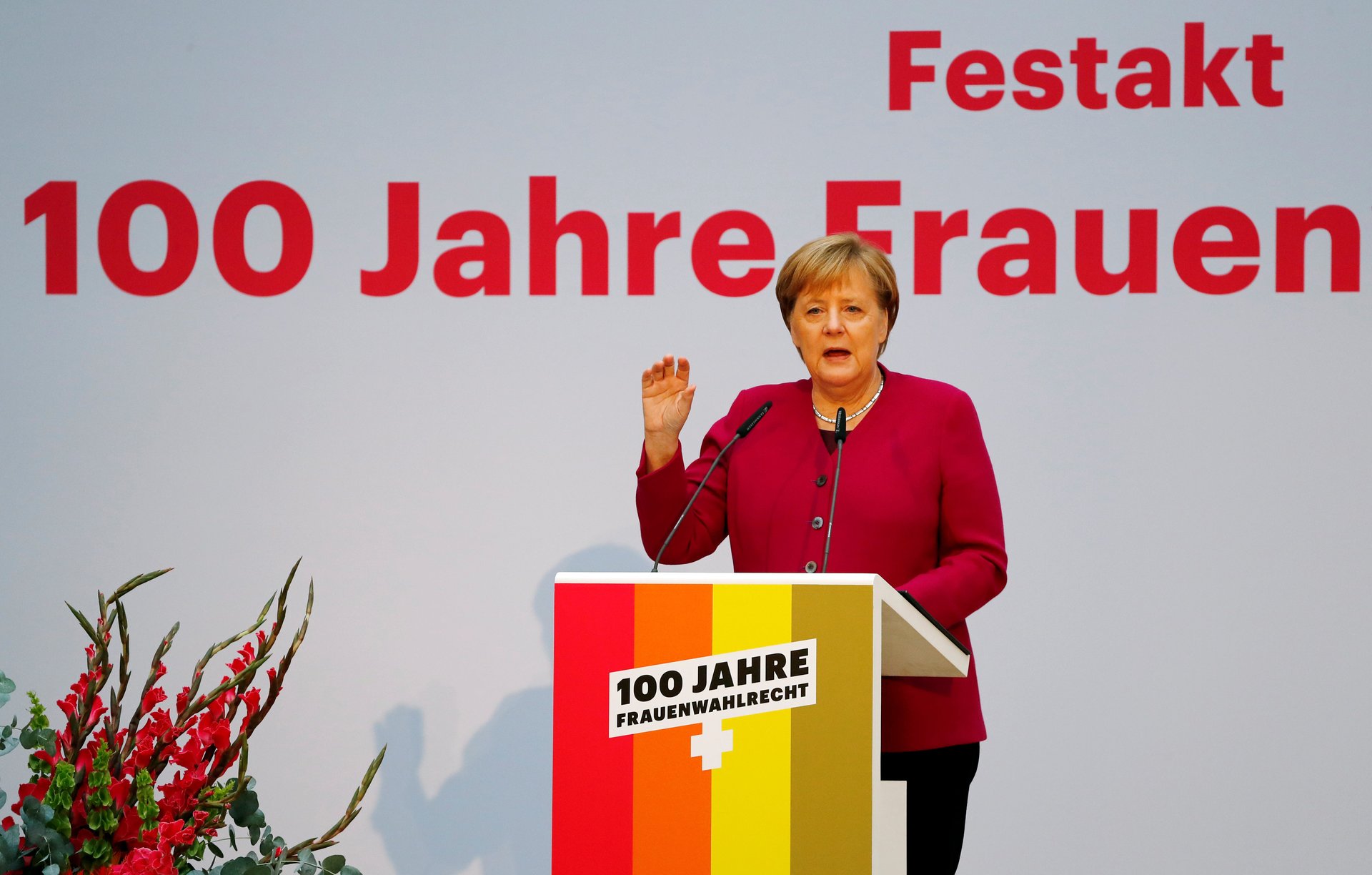100 years after women got the vote, German politics remains overwhelmingly male
This month is one of significant anniversaries in Germany. On Nov. 9, the country celebrated 29 years since the fall of the Berlin Wall, and commemorated 80 years since the horrific Night of Broken Glass, which preceded World War II. Sunday marked 100 years since the end of World War I. And today, Nov. 12, marks 100 years since German women were granted the right to vote, with the birth of the new Weimar Republic.


This month is one of significant anniversaries in Germany. On Nov. 9, the country celebrated 29 years since the fall of the Berlin Wall, and commemorated 80 years since the horrific Night of Broken Glass, which preceded World War II. Sunday marked 100 years since the end of World War I. And today, Nov. 12, marks 100 years since German women were granted the right to vote, with the birth of the new Weimar Republic.
Despite this long history of women’s suffrage, and the fact that the country has been lead by a woman for 13 years, women are largely underrepresented in politics and the C-Suites of the country’s businesses.
After last year’s general election, the percentage of women in Germany’s federal parliament, the Bundestag, slumped to just 31%, the lowest level in 19 years. Germany’s female politicians attribute the lack of women lawmakers to the same challenges faced by women globally in politics: They have to work harder to get the same job, they endure harsher criticism than men, and politics isn’t a family-friendly career. But they also note that women need to put themselves forward for political roles more often.
Merkel herself has been accused of doing little to promote women in politics from her position of power. She refused to say whether or not she would call herself a feminist at a G20 panel with IMF head Christine Lagarde and Ivanka Trump last year. The German chancellor did deliver a rebuke to men, however, at a recent meeting of the youth branch of her party, the Christian Democrats: “Women enrich life, not only in the private sphere, but also in politics,” Merkel said. “You don’t know what you’re missing.” Speaking at an event to celebrate the centenary of the women’s vote today organized by EAF, an organization dedicated to diversity in leadership, she added that if there were a few more women in NATO, the world would be a more peaceful place.
At the weekend, German justice minister Katarina Barley called for a gender quota in the Bundestag, similar to a government-mandated “female quota” of 30% for the corporate sector in 2016, intended to boost the proportion of women in the country’s largest companies. That quota law, however, only applies to companies with over 2,000 employees, and only to supervisory board seats—not management ones.